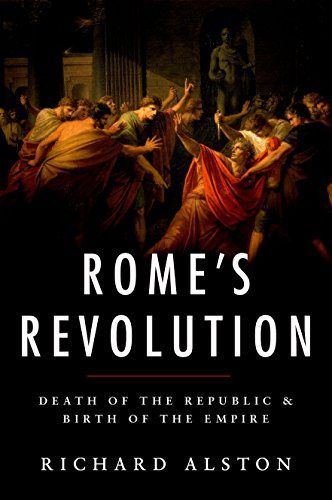
Rome's Revolution Death of the Republic and Birth of the Empire
On March 15th, 44 BC a group of senators stabbed Julius Caesar, the dictator of Rome. By his death, they hoped to restore Rome's Republic. Instead, they unleashed a revolution. By December of that year, Rome was plunged into a violent civil war. Three men--Mark Antony, Lepidus, and Octavian--emerged as leaders of the revolutionary regime, which crushed all opposition over the next decade. In time, Lepidus was removed, Antony and Cleopatra were dispatched, and Octavian stood alone as sole ruler of Rome. He became Augustus, Rome's first emperor, and by the time of his death in AD 14 the 500-year-old republic was but a distant memory and one of history's greatest empires had been born. Rome's Revolution provides a riveting narrative history of this tumultuous period of change. In addition to chronicling the drama of aristocratic rivalries, author Richard Alston digs beneath the high politics of Cicero, Caesar, Antony, and Octavian to reveal the experience of the common Roman citizen and soldier. Portraying the revolution as the crisis of a violent society--both among the citizenry and among a ruling class whose legitimacy was dwindling--Rome's Revolution provides new insight into the motivations that drove men to march on their capital city and slaughter their compatriots. An enthralling story of violent politics, social upheaval, and personal betrayal, Rome's Revolution is a brilliant new history of an epoch which still haunts us today.